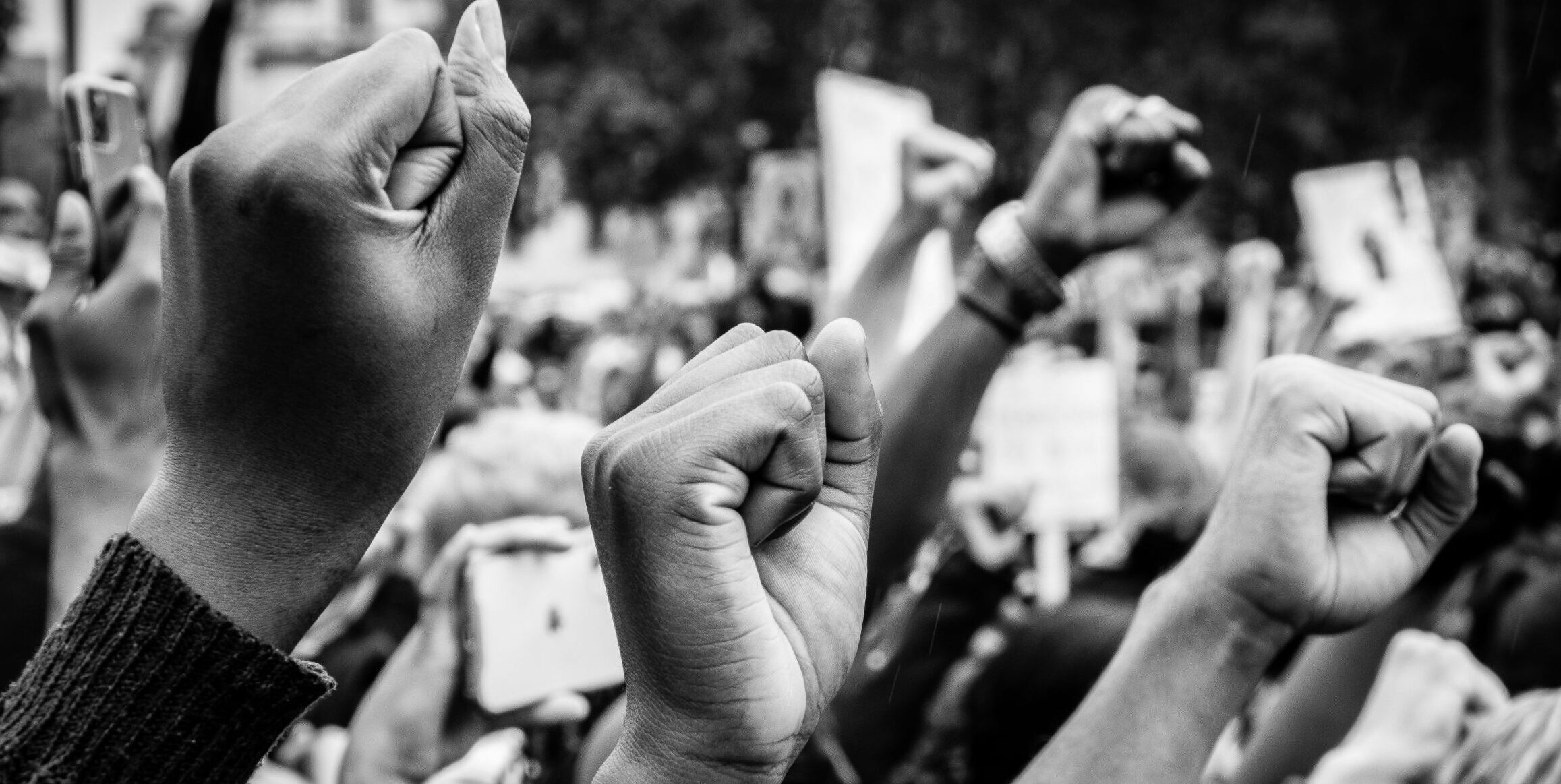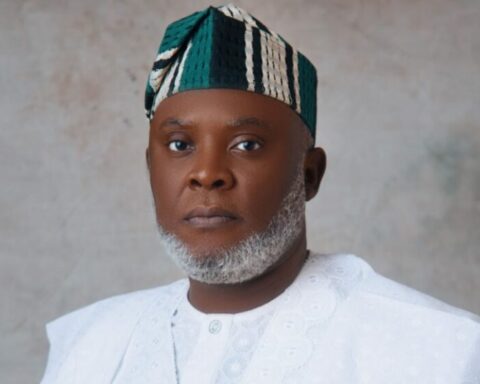By Charles Obiajulu Ugwu-PhD
The Quiet Collapse of a Grand Illusion
The twentieth century ended with an illusion so vast that it masqueraded as truth: that democracy had won.
It was said that history had reached its final chapter and that the human experiment had found its perfect equilibrium in the ballot box, the constitution, and the ritual of consent. Yet beneath this triumphalist myth, something more complex and corrosive was unfolding.
While technology rewired every nerve of the human enterprise, our economies, our intimacies, our cognition, the architecture of governance remained static, almost medieval in its rigidity. We built a world of instantaneous communication but still govern through the tempo of horse-age bureaucracy. We speak of global citizenship while our political systems remain bounded by 19th-century borders.
Democracy, in its current form, has become the most paradoxical of all human inventions: an ideal so sacred that it has become immune to self-examination. It wears the costume of virtue while quietly reproducing the very inequalities it once sought to dismantle. The result is a spectacle of participation without agency, a theatre of choice in which the actors change but the script remains the same.
When Representation Becomes Substitution
The founding premise of democracy was noble: that people should not be ruled without their consent, that power should be distributed, not concentrated. Yet somewhere along the path, representation transmuted into substitution, the citizen became an audience member, the state a stage. The public is no longer the author of its fate but the spectator of its decay.
The rituals persist: elections, parliaments, debates. But the vitality is gone. The machinery of democracy now operates like a simulation running on outdated code. The people are told they have power, but the system ensures that this power is never exercised beyond symbolic gestures.
Representation has turned into professional mediation. The governed are no longer the reference point; they are the raw material from which legitimacy is extracted. Political actors compete not to solve collective problems but to sustain the optics of choice. In this inversion, democracy ceases to be a mechanism of freedom and becomes a mechanism of pacification its real genius lying not in empowerment, but in control through illusion.
The Bureaucratic Leviathan
At its heart, democracy is slow—not because slowness guarantees wisdom, but because it institutionalizes hesitation. The machinery was designed for deliberation, yet it now drowns in self-referential procedures. Every decision must navigate a labyrinth of approvals, committees, and counter-committees. The process, not the outcome, becomes the performance of virtue.
Meanwhile, the world accelerates. Data moves faster than laws. Crises, ecological, technological, moral demand anticipatory action, yet our governance models still operate like analog machines in a digital storm. By the time a policy is formulated, the context that demanded it has already mutated.
This mismatch between the pace of governance and the velocity of reality is perhaps the most dangerous asymmetry of our age. It produces paralysis disguised as caution, incompetence dressed as consensus, and an illusion of progress that masks systemic decay.
Democracy, which was meant to be the safeguard of human adaptability, now functions as its constraint.
The Economics of Legitimacy
The democratic state has become an expensive theatre. Elections consume billions; campaigns have mutated into marketing wars where data scientists outnumber philosophers. Influence is now a commodity traded by corporations, consultants, and foreign actors.
The tragedy lies not just in corruption, but in the normalization of transactional governance. The cost of access has become the cost of democracy itself. The poor provide the legitimacy, the rich purchase the outcomes. This quiet inversion where legitimacy flows upward and accountability downward has rendered the idea of people’s power obsolete.
Moreover, in a globalized economy, national politics have become hostage to transnational capital. The “will of the people” is constrained by the logic of markets and the dictates of debt. Sovereignty has become a managed illusion. Governments no longer govern; they administer conditions designed elsewhere.
Thus, democracy, in its contemporary form, is not the rule of the people rather it is the management of perception.
The Moral Exhaustion of the Democratic Project
No system can survive when it ceases to believe in itself. Democracy’s crisis today is not merely political—it is metaphysical. It has lost its moral narrative. The great stories that once animated it as freedom, equality, progress, have been diluted into slogans.
In their place, we now have a politics of resentment. Citizens no longer gather around common purpose but around shared grievance. The state no longer inspires; it apologizes, deflects, and justifies. The public sphere once the heartbeat of civic life has disintegrated into algorithmic tribes, each convinced that their fragment of truth is the whole.
The democratic citizen is overwhelmed, distracted, and fatigued. The constant noise of politics has produced apathy. Participation feels futile because outcomes rarely reflect input. And so, a quiet cynicism spreads: people play along, but they no longer believe.
Democracy survives, not because it works, but because its alternatives terrify us more.
The False Binary: Democracy or Dictatorship
Human imagination has been trapped within an outdated binary of democracy or dictatorship as though these were natural opposites rather than historical constructs. Both, in fact, are responses to the same fear: how to manage power without chaos.
Dictatorship centralizes control under the pretext of efficiency; democracy diffuses it under the pretext of fairness. Yet both operate on the same assumption that governance must be vertical, that legitimacy must flow from a single center outward. Both rely on a model of citizenship that is fundamentally passive: the ruled, whether by consent or coercion, remain spectators.
The real dichotomy today is not democracy versus dictatorship. It is adaptive versus obsolete systems. The future will not reward political forms that cling to ritualized legitimacy but those capable of learning, evolving, and self-correcting in real time.
The Case for Adaptive Polity
Imagine a system of governance that behaves more like a living organism than a mechanical structure that learns from feedback, senses shifts in its ecosystem, and recalibrates without waiting for collapse.
This is not utopian fancy; it is ecological logic. Nature thrives not through rigid control but through adaptive complexity. The forest does not vote, yet it self-organizes, regenerates, and sustains balance. The same principle can inform the next evolution of human governance.
An Adaptive Polity would not seek uniformity but coherence. It would treat governance as a distributed intelligence system; fluid, decentralized, and transparent. Decision-making would be layered, not linear; data would be a common good, not a weapon of manipulation.
Such a polity would harness the collective cognition of its citizens not as voters alone, but as active nodes in a continuous feedback network. Governance would shift from being an event (elections) to a process (participation). From periodic consent to perpetual co-creation.
It would employ technology not as surveillance but as sense-making. Blockchain for transparency, AI for scenario modeling, civic platforms for deliberation not as replacements for human judgment but as instruments for collective wisdom.
Power would not vanish; it would morph from the monopoly of institutions to the stewardship of ecosystems.
The Ethics of Fluid Power
The most radical shift in the Adaptive Polity is moral: power ceases to be owned. It is held in trust, like oxygen, circulating through systems designed to keep it clean. Accountability becomes continuous, not occasional. Transparency becomes the default, not the demand.
In such a design, leadership is not a status but a function that is rotational, evidence-based, and impact-measured. The charisma of personality gives way to the credibility of competence. The political class dissolves into a civic guild, a new social architecture where legitimacy arises from contribution, not charisma.
This new ethic of governance will require a corresponding evolution in consciousness. Citizens must cease to be consumers of politics and become curators of collective destiny. The future will belong not to those who shout the loudest, but to those who can synthesize, sense, and design meaning in motion.
The Adaptive Polity and the Future of Civilization
The twenty-first century is not merely a technological era it is a civilizational stress test. Climate chaos, AI autonomy, demographic shifts, and economic volatility are converging into a single planetary feedback loop. Governance, as currently practiced, cannot handle this density of complexity.
If we continue to rely on static systems for dynamic problems, collapse is not a question of if, but when.
An Adaptive Polity offers a possible escape from this deadlock. It reframes governance as a regenerative system capable of learning from disruption, not merely surviving it. Its architecture is neither hierarchical nor anarchic, but symbiotic: local intelligence linked to global coordination.
Instead of importing solutions from above, problems are solved through networked collaboration. Instead of managing crises feedback loops.
This is governance as a living intelligence. reactively, societies evolve proactive sensing mechanisms. Instead of leaders speaking for the people, the people speak through dynamic
Toward a New Social Covenant
The transition from democracy to Adaptive Polity will not be legislated into existence it must be imagined into being. Every civilizational shift begins as a moral awakening before it becomes a structural reality.
We must begin by dismantling the mythology of permanence that surrounds democracy. No system is sacred; all are provisional. The idea that democracy is the final form of human governance is as arrogant as the medieval belief that the Earth was the center of the universe.
The new social covenant must be built around a deeper understanding of interdependence. Power must be treated as ecology, not commodity. Authority must emerge from competence and contribution, not lineage or manipulation. Governance must mirror the intelligence of complex systems that are resilient, adaptive, and regenerative.
Citizenship itself must evolve from identity to agency, from belonging to participation, from consumption to co-creation. The political state must become a learning organism, capable of sensing and evolving with the collective consciousness of its people.
The End of Nostalgia, The Birth of Design
Humanity stands at a civilizational crossroad, caught between nostalgia for forms that once worked and the necessity of forms yet to be designed. Democracy, for all its historical glory, is no longer a guarantee of justice, freedom, or prosperity rather it is merely a container whose contents have leaked.
The task before us is not to destroy democracy, but to transcend it. To evolve its spirit beyond its structure. The courage required is not revolutionary in the violent sense, but regenerative in the creative sense.
This is not the end of governance; it is the beginning of governance as intelligence. The next political revolution will not be televised rather it will be designed.
The Call
We must now summon a new imagination, one bold enough to question what the world has long assumed sacred. The real heresy of our time is not to criticize democracy, but to believe that we can do better.
Let the next era of human governance be defined not by slogans, but by systems that can learn, adapt, and evolve. Let us replace the politics of performance with the architecture of participation, the economics of capture with the ethics of stewardship, and the illusion of consent with the practice of coherence.
The future will not belong to the most democratic nations.
It will belong to the most adaptive civilizations.
About Author
Dr. Charels Obiajulu Ugwu writes from Lagos



























